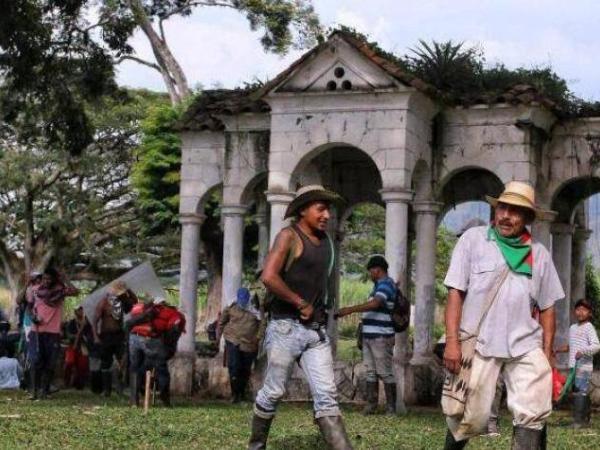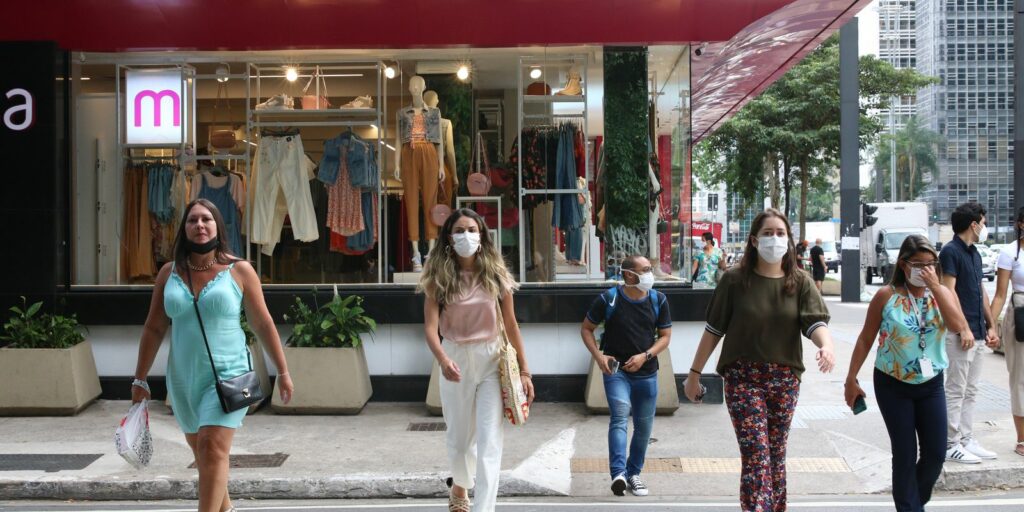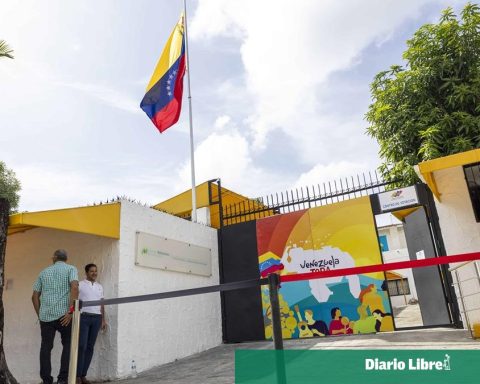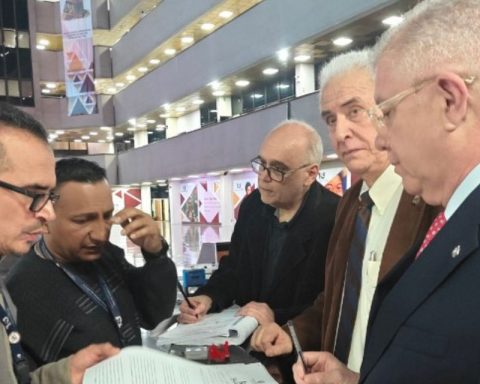After two failed attempts to reach an agreement, the Government —through Interior and Transport officials— came out against the truckers’ strike and reiterated the proposals that they have put on the table to unlock the conflict and satisfy the demands of carriers in terms of safety and fuel prices, which have not had a foothold and for which the stoppage continues after seven days of mobilization on the highways.
The Undersecretary of the Interior, Manuel Monsalve, maintained that “Chile is not in a position to occupy its public resources in a problem that is private.” From La Moneda, he noted that “the problem they have with rates has to be resolved with those who set the rates, and those who set the rates are the companies that generate the load.” And it is that what is trapping the conversations is precisely the reduction in the price of fuel that truckers are asking for, something that the Executive has tried to address by offering to freeze the price of diesel for three months and inject an additional US$1.5 billion into MEPCO; what was not accepted by the carriers in the last meeting.
You may also like:
“In the proposals that have been delivered to the different transport unions with which talks have been made, the Government’s determination to intervene is evident, firstly because it is placing large resources from all Chileans in the Mechanism for Stabilization of Prices of Fuels, US$1.5 billion,” Monsalve stressed. The Government has promised to prevent the rise in diesel fuel for a period of up to four months, that is, “we are committing that there will be no rise and that under no circumstances would the price of fuel rise.”
“It may be that the rise in fuel, particularly diesel, is not transferred to the rate paid to carriers, it may be that there are transport sectors where fuel rises and their rate is not changed, they continue to pay the same, and therefore, it is assuming the rise in the cost of fuels. For this reason, we talked with the Confederation of Production and Commerce (CPC), and yesterday we sat at the table with the carriers the union leader, Juan Sutil,” he added the Undersecretary of the Interior, mentioning that La Moneda opened to mediate through the Ministry of Transport and Economy, together with the CPC and representatives of truckers so that “in those cases where there are no contracts with polynomials that reflect the rise in fuel the rates, that is resolved”.
“Chile, because in reality they are everyone’s resources, it does not have to take charge with resources that are required in Health, Education, vulnerable sectors and older adults of the problems of fixing rates that they have between private parties,” the undersecretary deepened, highlighting that “we have concretely taken charge of the demands in terms of security”.
For Monsalve, “the fiscal effort that the Government is making to be able to face the rise in fuel prices and the table that it is setting with the CPC are unprecedented events.” In this sense, he called on truckers not to demand reductions in fuel prices. “Do not occupy Chile to resolve its internal conflicts,” he asserted, warning that “there is no reason not to reach an agreement.”
“We hope that the truckers union also understands the role it plays at the national level”
The Minister of Transport, Juan Carlos Muñoz, in line with the Interior, expressed at the same press outlet that he has no memory of the fact that the price of fuel is going to be frozen with the promise that it will not increase, “and I think that should be valued by the trade unions as an ability to raise awareness on a subject that is important”.
“We are hopeful that the truckers’ union also understands the role it plays at the national level, what this means for the country in terms of the start of the export season for agricultural products, and that there are many agricultural exporters of different sizes, small , medium, which would be affected by this issue,” said the head of Transport and Telecommunications.
Minister Muñoz expects “good sense and rationality to prevail in this sense, with respect to assessing those measures that we are proposing from the Government to resolve an important issue.”
It is worth mentioning that yesterday the leaders of truck drivers, after a long meeting at the Ministry of Transport, Freddy Martínez and Cristián Sandoval, assured that an agreement was not reached, so they continue with the mobilizations waiting for “the Government to react”.
Let’s remember that the truckers ask for a decrease in the price of fuel for four months and that during that time work be done on a new mechanism to stabilize its value.
Until now, there is no date set for a new meeting between truckers and La Moneda. And currently there are 37 sources of trucker mobilizations, of which 36 are on the side of the berm and one remains with a “partial cut.” The arrests rose to 17 (11 by the State Internal Security Law) and the supply plan remains active.
Given the extension of the stoppage and the alerts of shortages from supermarkets and agricultural producers, the Government activated a plan with 140 trucks that transport products and “basic supplies” escorted by the police.
The Chilean Association of Fruit Exporters (Asoex) warned on Saturday that if the strike continued, the industry “would have no other option but to stop the fruit harvest.”
The truckers, a group that has had enormous power of influence in Chile since rail transportation was abandoned during the Augusto Pinochet dictatorship (1973-1990), hold the second protest so far this year alleging lack of security on the routes. The first was in April, a month after Boric came to power.
The transport mobilizations in Chile have a large and direct impact on its economy, since there is no alternative to land transit, weighed down by the lack of interest in the development of an extensive rail network during the dictatorship.
Subtle John: Losses “will increase to US$200 or US$300 million”
The president of the CPC, Juan Sutil, who assured that “without a doubt the truckers have demands that are very relevant,” explained that if the mobilization is extended for another week, the losses “will go to US$200 or US$300 million”, due to the inability to move the containers from the ports and bring the vegetables.
in conversation with TVN, Sutil assured that “yesterday we worked for more than 12 hours in a row in permanent talks and I believe that an agreement should now be started to end this problem.” In addition, he recognized that “there is a very robust proposal that is somewhat better than the one on Monday.”
The leader of the CPC affirmed that “I trust that in the next few moments a substantial agreement should be reached, perhaps not with all” with the idea of ”preventing this from escalating.”


















